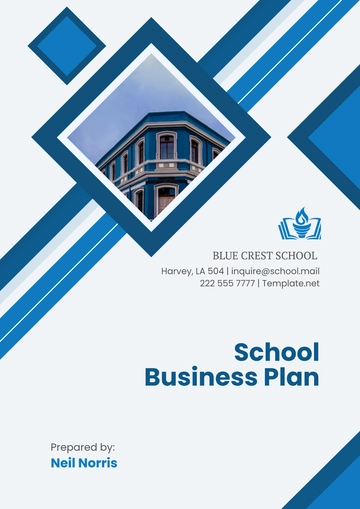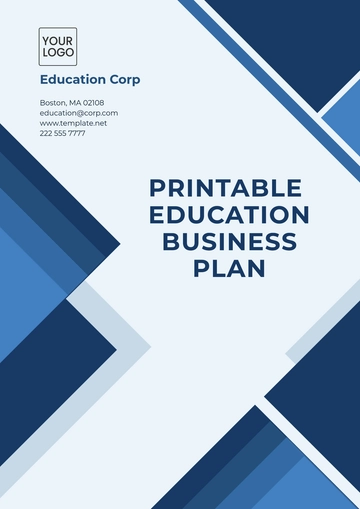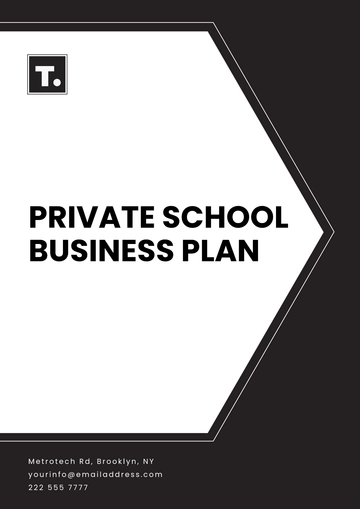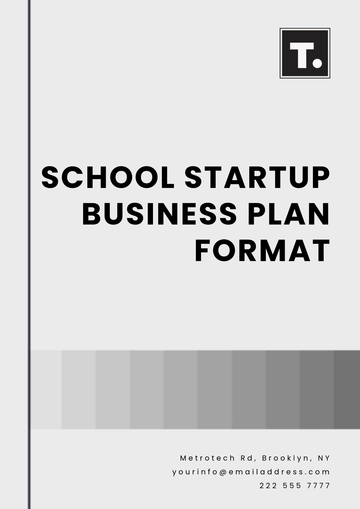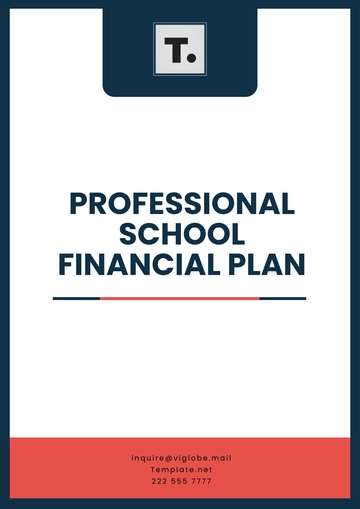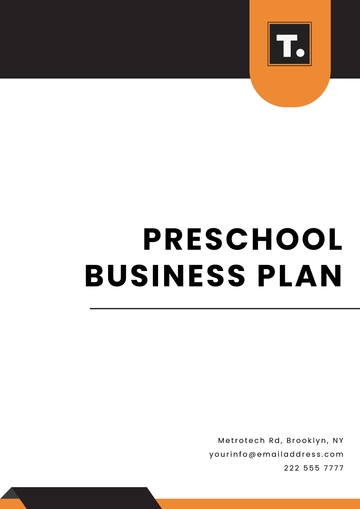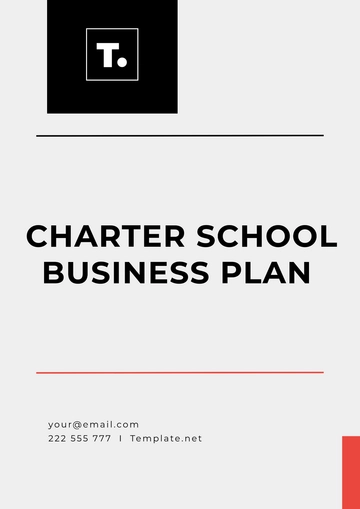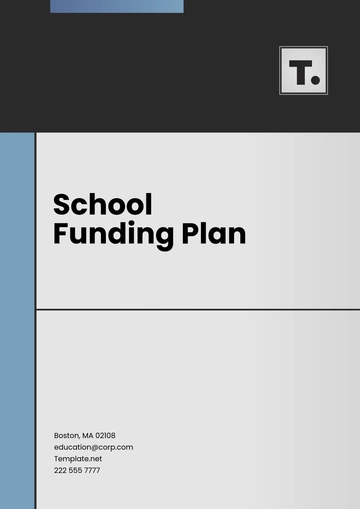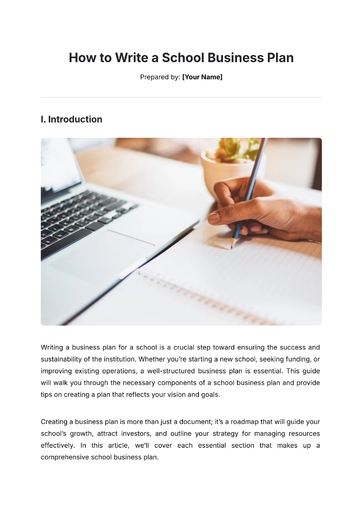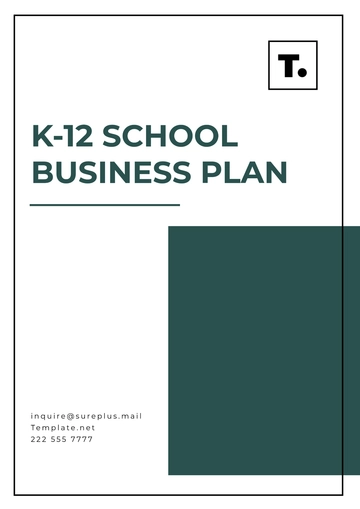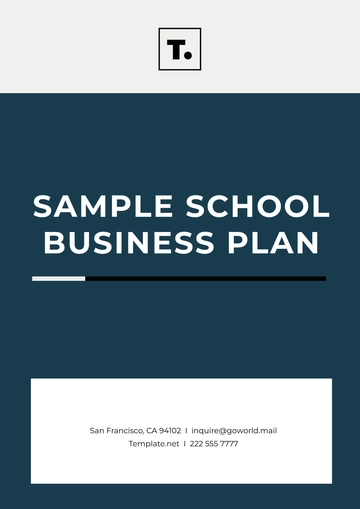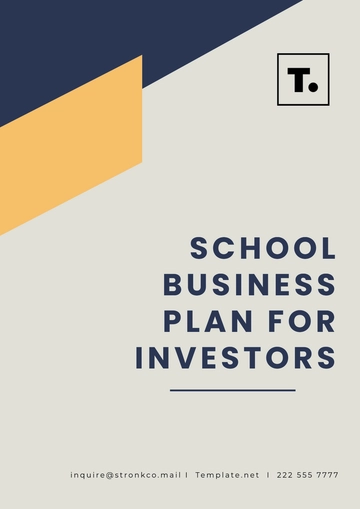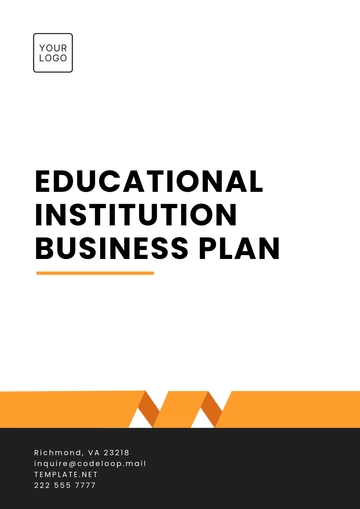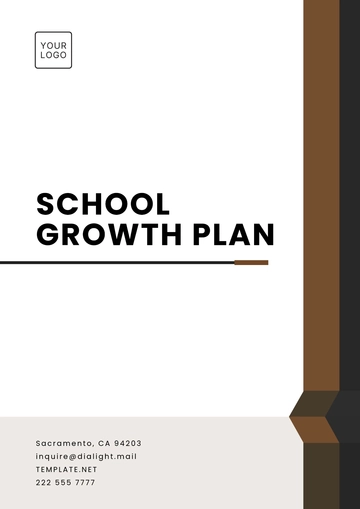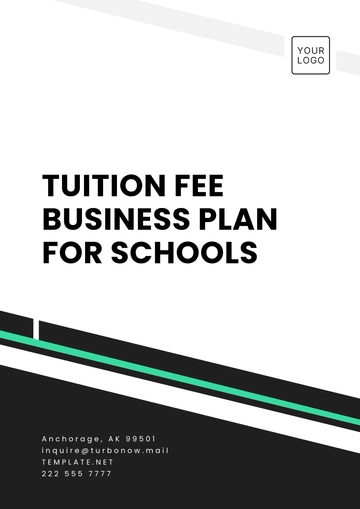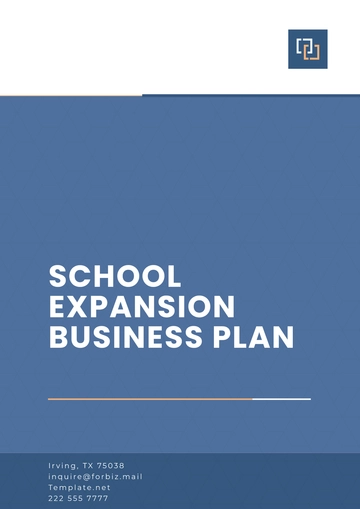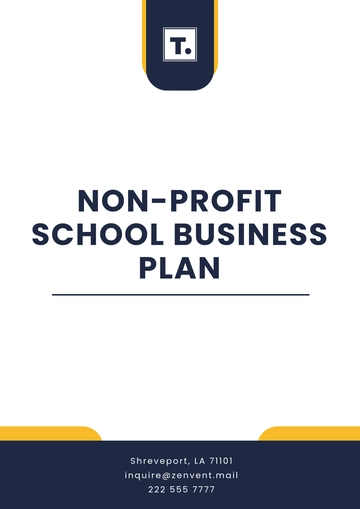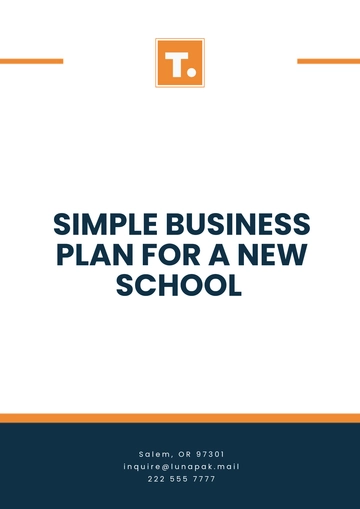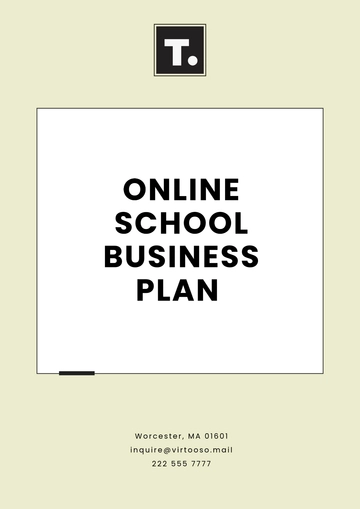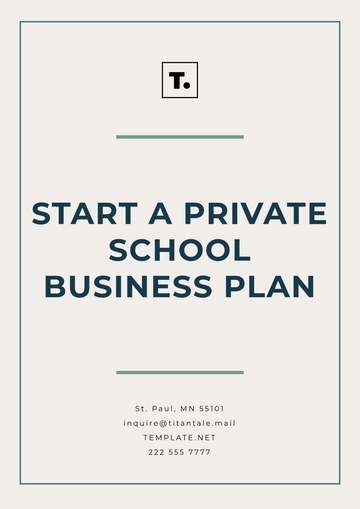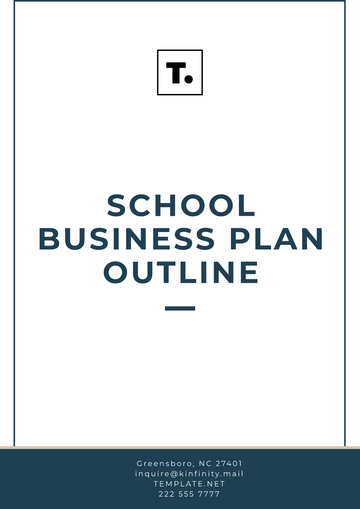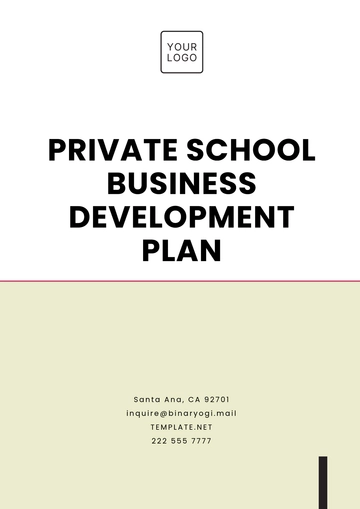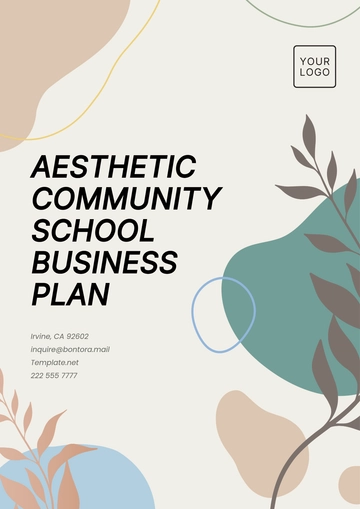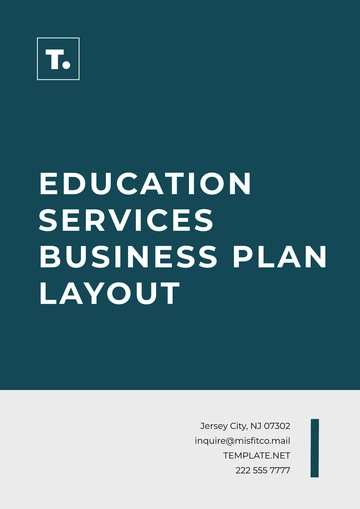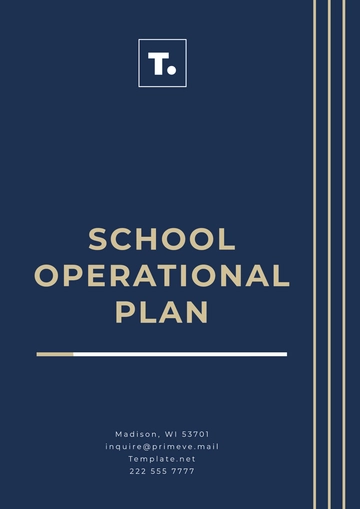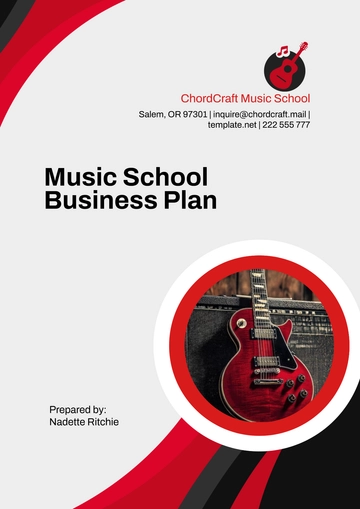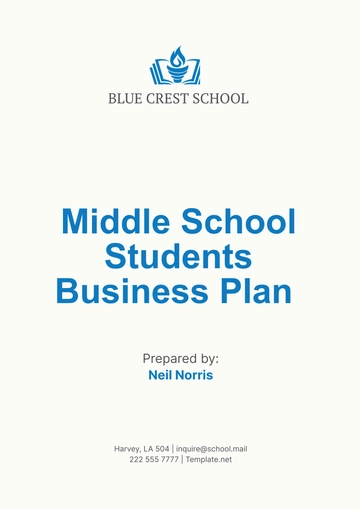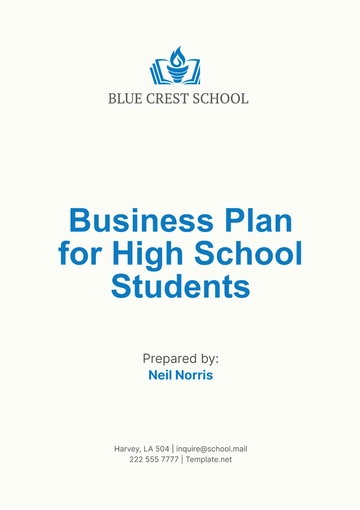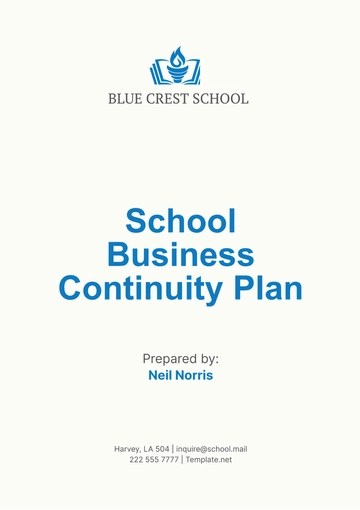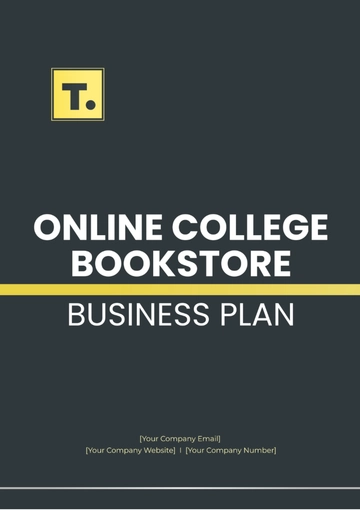Free Private School Business Plan
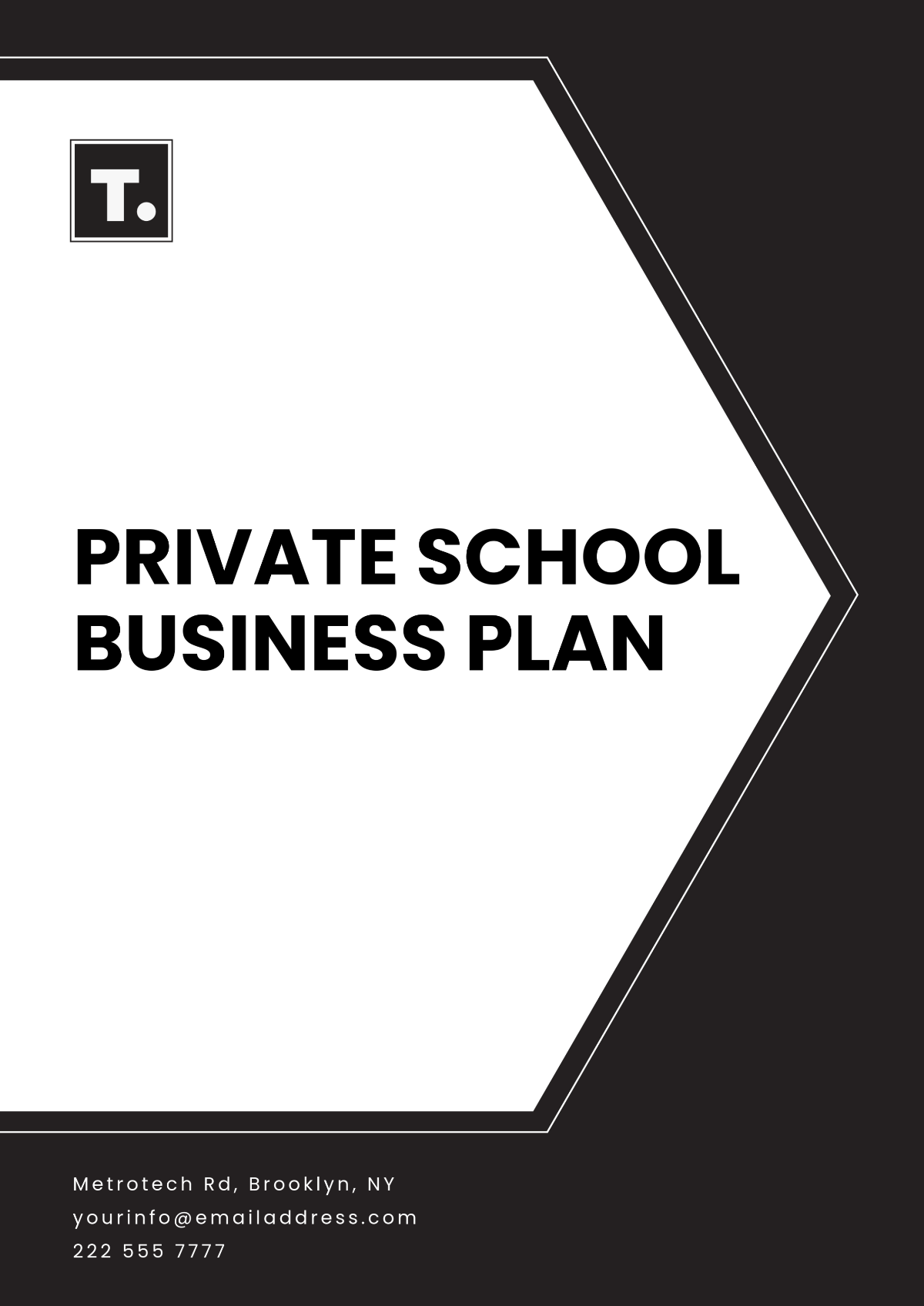
Executive Summary
Business Name: [Your Company Name]
Location: [Your Company Address]
Mission Statement: [Your Company Name] is dedicated to nurturing innovative, empathetic, and critical thinkers prepared to excel in a rapidly evolving world.
Vision Statement: To become the leading institution for personalized and future-focused education by 2060, fostering global leaders and pioneers in diverse fields.
Summary of Services: [Your Company Name] will provide a K-12 education with specialized STEM and arts programs, immersive language training, and advanced technological integration designed to prepare students for the challenges of the 21st century and beyond.
Financial Summary: Startup costs of $5 million with projected annual revenue of $3.5 million by the end of Year 3. Funding is sourced from private investors, educational grants, and community partnerships.
Business Description
Industry Overview: The global private education industry is anticipated to grow by 20% annually, with significant advancements in personalized learning, digital integration, and globalized curriculums.
School Overview:
[Your Company Name] will serve grades K-12 in a state-of-the-art facility equipped with the latest educational technologies.
Focus areas include STEM, arts, global studies, and leadership development.
Unique value proposition: small class sizes, AI-driven personalized curriculum, hybrid learning models, and a strong emphasis on student well-being and emotional intelligence.
Market Analysis
Target Market:
Parents aged 30-50 with household incomes above $150,000.
Families prioritizing high-tech, globalized education with an emphasis on STEM and multilingual capabilities.
Urban and suburban communities of Metropolis City.
Market Needs:
Growing demand for innovative STEM programs integrated with practical applications.
Limited options for immersive bilingual and globalized education tailored for future economies.
Competition Analysis:
Competitors include Bright Futures Academy, Innovators Prep, and Metropolis International School.
Advantage: exclusive partnerships with tech firms, government initiatives, and a globally diverse faculty team.
Marketing Trends:
85% of parents use social media for school research and decision-making.
Increasing popularity of hybrid and virtual learning platforms, along with experiential learning models.
Organizational Structure
Ownership: [Your Company Name] is a privately owned LLC.
Leadership Team:
Founder and CEO: Alex Smith, Ed.D. (20+ years in education leadership, specializing in innovative school systems).
Principal: Dr. Jamie Lin (renowned expert in STEM education and educational policy reform).
CFO: Sarah Jones (15 years in finance for education sectors, with expertise in strategic funding and budgeting).
Staffing Plan:
30 certified teachers by Year 1, with plans to expand to 50 by Year 3.
Support staff: 10 in Year 1 (administrative, maintenance, cafeteria), increasing as enrollment grows.
Services and Curriculum
Educational Programs:
Core subjects aligned with 2050 educational standards and future industry needs.
Advanced STEM curriculum including robotics, AI, renewable energy, and biotechnology.
Dual-language immersion programs in Mandarin, Spanish, and optional French.
Extracurricular Activities:
Competitive robotics, visual arts, performing arts, and a debate team.
Community service initiatives, entrepreneurship programs, and leadership training.
Special Services:
AI-driven tutoring systems offer real-time performance analytics and personalized learning paths.
On-site counseling, mental health services, and wellness programs to support holistic development.
Marketing and Enrollment Strategy
Branding:
The name, logo, and tagline emphasize innovation, inclusivity, and global readiness.
Branded materials include interactive brochures, a futuristic website, and VR-based school tours.
Marketing Channels:
Social media campaigns on platforms like NeoMeta, FutureGram, and localized parent forums.
Local advertising through community hologram boards and virtual reality showcases.
Partnerships with tech firms and cultural organizations to enhance visibility and credibility.
Enrollment Strategy:
Open houses, virtual reality school tours, and exclusive enrollment incentives for early applicants, such as reduced fees.
Personal outreach programs and testimonials from alumni families.
Retention Plan:
Regular parent-teacher AI conferences and feedback sessions.
Multi-year enrollment incentives, loyalty discounts, and continuous quality improvement initiatives.
Financial Plan
Startup Costs:
Facility setup: $2 million, including sustainable infrastructure and modern classroom designs.
Technology: $1.5 million for AI systems, robotics labs, and smart classroom devices.
Staff salaries and training: $1 million, emphasizing professional development.
Marketing: $500,000 for branding, outreach campaigns, and enrollment drives.
Revenue Streams:
Tuition: $15,000 per student annually, competitive yet reflective of premium services.
Enrollment and activity fees: $2,500 per student annually, supporting extracurricular programs.
Grants and donations: $500,000 per year, sourced through targeted grant applications and philanthropic support.
Projections:
Year 1 enrollment: 200 students ($3.5 million revenue).
Year 3 enrollment: 400 students ($7 million revenue), supported by expanded programs and facilities.
Break-even by Year 2, with profitability expected by mid-Year 3.
Funding Needs:
Seeking $2.5 million in private investment from educational and community investors.
Applying for $500,000 in educational technology and sustainability grants.
Operational Plan
Location and Facilities:
50,000 sq. ft. campus featuring solar panels, smart classrooms, green spaces, and a future-ready library.
Future expansion to include a sports complex, innovation hub, and additional classrooms by 2052.
Daily Operations:
School hours: 8:00 AM - 3:30 PM, with after-school programs until 6:00 PM.
Policies: Strict attendance and safety guidelines, along with a robust digital safety protocol.
Technology and Resources:
AI-based learning platforms to enhance personalized learning experiences.
Cloud-based administrative systems for seamless operations and parent engagement.
On-site tech support and continuous upgrades to ensure cutting-edge infrastructure.
Risk Analysis
SWOT Analysis:
Strengths: Cutting-edge curriculum, expert faculty, and strong community engagement.
Weaknesses: High initial costs and dependency on enrollment growth.
Opportunities: Growing demand for innovative education and increased access to educational technology grants.
Threats: Economic downturns, competitive pressures, and potential shifts in education policy.
Risk Mitigation Strategies:
Establishing emergency financial reserves and contingency plans.
Comprehensive insurance coverage for facilities, technology, and operations.
Diversified revenue streams, including adult education programs and partnerships.
- 100% Customizable, free editor
- Access 1 Million+ Templates, photo’s & graphics
- Download or share as a template
- Click and replace photos, graphics, text, backgrounds
- Resize, crop, AI write & more
- Access advanced editor
Craft a winning strategy with Template.net’s Private School Business Plan Template. Customizable and editable, it offers a structured layout to outline your goals, financial projections, and operational strategies. Editable in our AI Editor Tool, it’s perfect for starting or expanding private schools. Download now for a comprehensive plan.
You may also like
- One Page Business Plan
- Coffee Shop Business Plan
- Restaurant Business Plan
- Food Business Plan
- Real Estate Business Plan
- Executive Summary Business Plan
- Cover Page Business Plan
- Nonprofit Business Plan
- Daycare Business Plan
- Construction Business Plan
- Startup Business Plan
- Medical Business Plan
- Bakery Business Plan
- Service Plan
- Hotel Business Plan
- Catering Business Plan
- School Business Plan
- Healthcare Business Plan
- Transportation Plan
- Sports Plan
- Car Wash Business Plan
- Salon Business Plan
- Clothing Business Plan
- Farming Business Plan
- Boutique Plan
